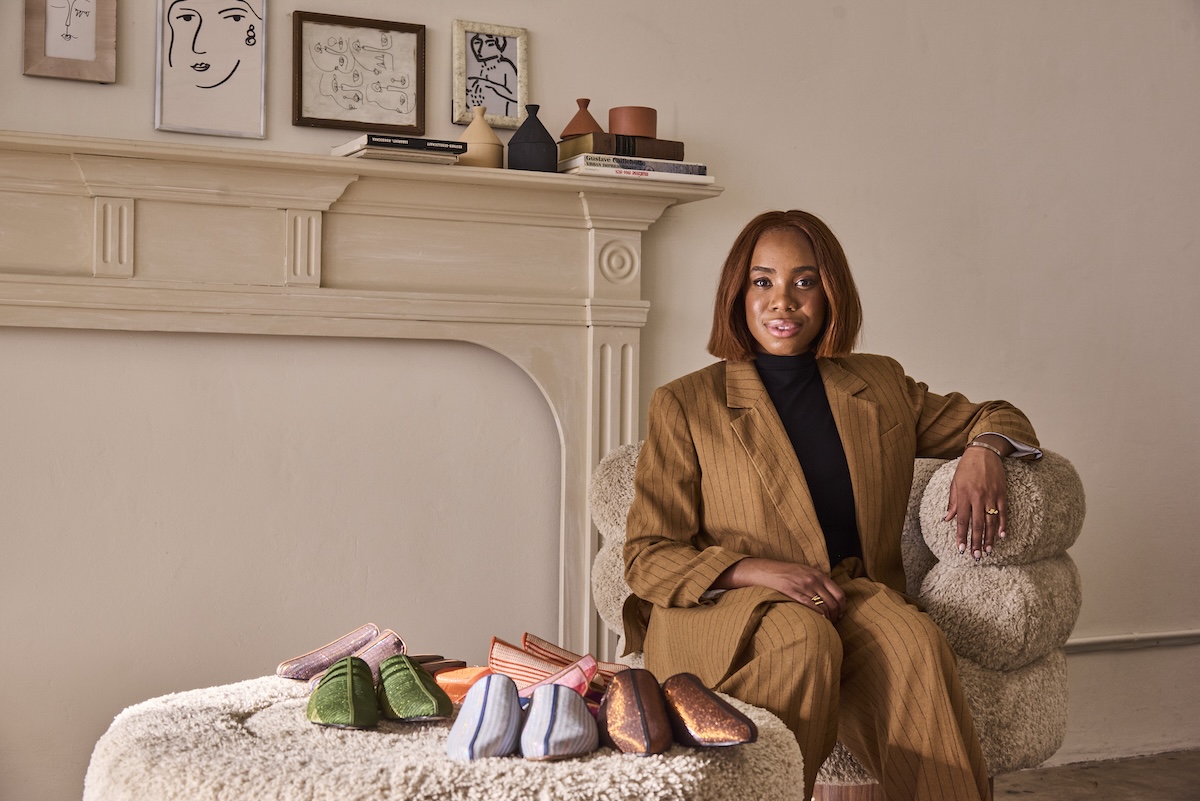
Entrepreneur Brittney Ifemembi On Crafting Nigerian-Inspired Design Brand Ifsthetic
May 1, 2024
Pallavi is a Los Angeles and Mumbai-based freelance journalist. She writes about design, travel, and lifestyle for leading publications like Travel & Leisure, Architectural Digest, Conde Nast Traveller, GQ, Thrillist, and Observer. An avid traveler and design enthusiast, she finds inspiration in everything she encounters, be it her immediate environment or her travels around the world.
Founded by Nigerian-American artist Brittney Ifemembi, Ifsthetic is a luxury homeware and accessories brand selling pillows, sculptures, candles, rugs, and slippers with a maximalist design aesthetic. Each piece, hand-designed by Brittney, has a unique touch rooted in Ifemembi’s Nigerian heritage. This Los Angeles-based brand is conceptualized for those who are looking for a truly distinct and culturally significant design.
We spoke to Ifemembi to learn about her inspiration, her design processes, and the ultimate goal of her works.
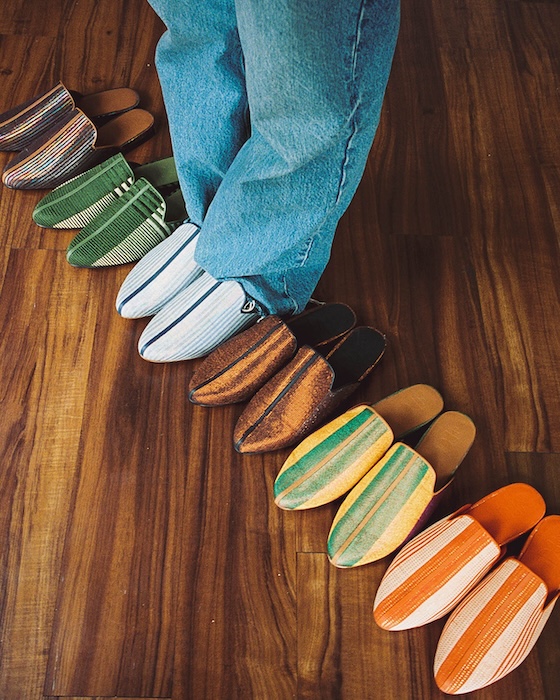
Please tell us a little about your artist and product designer journey.
Brittney Ifemembi: Ever since I watched the first episode of Project Runway and saw them make dresses out of red vines, I have been in love with creating and making products. Originally, it was just a hobby. After I pursued an education in economics, I moved to New York to learn about strategic design and management. In New York, I rediscovered my hobby through a role at Brandon Maxwell. There, I learned how to produce a luxury product from concept to final product, communicate with factories in the United States and abroad, and so much more. My favorite part was always watching the customer’s reaction to the final product. It was so rewarding! Eventually, it finally clicked. I could design and create those magical moments for the customer for a living. I craft every part of Ifsthetic, from the website to the packaging and product, so the consumer indulges in a luxurious experience at every step.
Ifsthetic’s collection of luxury home decor pieces and accessories, hand-designed by you, have a unique touch rooted in your Nigerian heritage. Why did you think there was a need to do that?
Nigerian culture is vibrant and bold. I wanted to celebrate and communicate this aspect of my culture that’s often overlooked or misrepresented. From the fabrics that my mother and grandmother would wear to the music we listen to and even the way we prepare our food, our culture is all about living fully. With Ifsthethic, I go one step further to encourage others to live luxuriously.
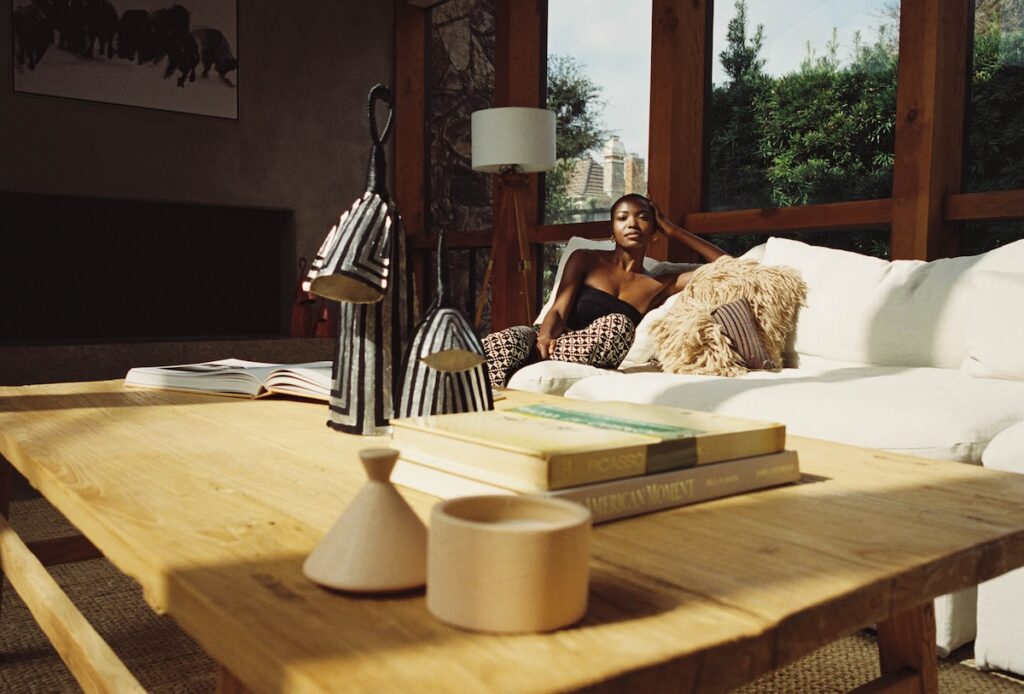
What inspires you to create the products that you do? Why do you advocate handmade artisan pieces for the home?
My grandmother’s archive! I have an archive of her fabrics from the 60s and 70s that I reference for inspiration (which makes a cameo in the photoshoots). True to my culture’s love of enjoyment, Ifsthetic is about having fun. At one point, I realized that home decor was dull. It was a direct copy and paste of the same Pinterest board. Your home should reflect your personality, and Ifsthetic is here to help facilitate that.
Handmade is akin to couture, the highest form of luxury, especially in this world where many things are mass-produced with low quality. We need to tilt the scale with handmade pieces.
Please talk about your process, both how you conceive or plan your products and how you go about making the piece.
First, I outline the product category I want to tackle. Then, I think about how I want to feel when interacting with the end product. That leads to multiple mood boards and sketches, which inform my material choice. After that, I start playing with different materials and begin the official design process. Once I choose my final design, it is off to the races, and I search for artisans to help me create the product.
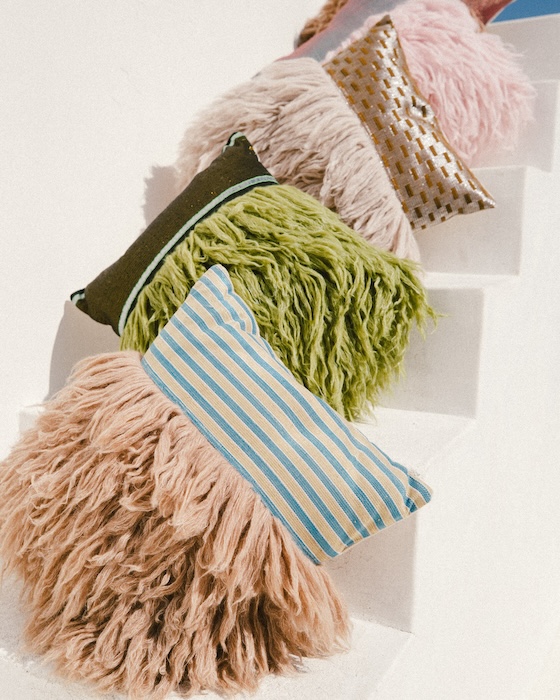
Your products are designed for those who are looking for a truly distinct and culturally significant design. What is your ultimate goal for these pieces?
My goal is for everyone to live ‘ifsthetically’ and embrace the art of being extra. This means embracing your most luxurious, visually creative self and expressing it as boldly as you want in the comfort of your home. It means finding luxury in the little things, like a joyful pillow to throw on your couch, a candle in a beautiful vessel, or lounge slippers that match the vibe of your home.
Your artisan-made collection features vibrant materials sourced from Nigeria. How do you decide which materials to use for a particular piece?
Our Wugo throw pillows, for example, are inspired by my grandmother—the grandeur of her traditional outfits and the joy she exudes at parties. When you look at our pillows, they have their character. Firstly, the fabric Aso Oke, a traditional Nigerian fabric, is handwoven in silk or cotton by the Yoruba people. It is usually worn for special events. They make custom outfits out of it and also use it for head wraps. Similarly, the Aso Oke I chose for the pillows is rich and opulent.
Secondly, the fringe depicts joy and movement, creating that dancing effect. It is made of alpaca, hand-knitted in Peru, and it’s a cool depiction of the fusion of cultures. As a Nigerian American, I grew up in the United States, so how I interact with the fabric or something else from my culture might be different from somebody who is Nigerian and grew up in Nigeria or Nigerian and grew up in Sweden, or anywhere else around the world. It’s diaspora translated into objects.
All of your products are eclectic and bold. What advice do you have for designers who want to achieve a similar design aesthetic?
My advice is to be authentic, play with color and texture, and create from your dearest memories or emotions. We all have a unique story to tell.
Ifsthetic is a part of Madewell’s Maker Collective Class, which is a curated cohort of U.S.-based, emerging brands creating small-batch goods. Tell us about this collaboration. Why is it so significant for your brand?
Madewell is a well-established organization, and it is wonderful to receive such an amazing opportunity to share Ifsthetic with a wider audience.
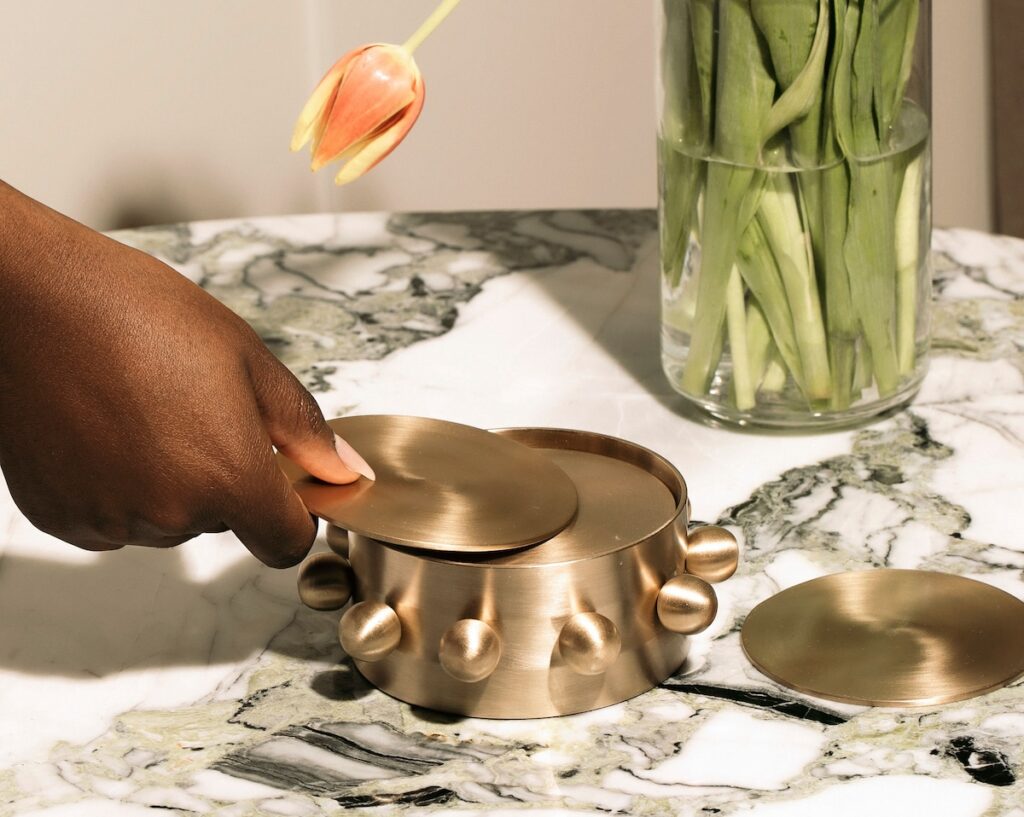
What’s next for Ifsthetic? What kind of collections can we expect to see in the future?
We’re expanding the product line to extend to more parts of the home. The next step is the table. As a sneak peek, we are coming out with candlesticks, coasters, and tablemats.
Lastly, as a woman of color and an entrepreneur, what advice do you have for women looking to start their own brands?
Be passionate about the business that you are starting. The story you tell will get you most of your opportunities. Figure out what makes you special and run with it.

Nice and love the originality,it’s reflect your journey through life from being dynamic with your flexibility……up high in the sky is just your starting point.